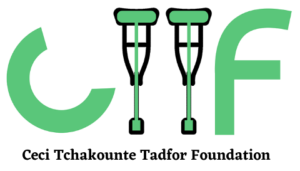Navigating the Healthcare System with a Disability in Africa
Navigating the healthcare system with a disability in Africa can be a complex and challenging experience. Individuals with disabilities face numerous barriers when accessing healthcare services, including physical, attitudinal, and communication barriers. In this article, we will explore the key factors to consider when navigating the healthcare system with a disability in Africa and provide tips for individuals with disabilities to better access the care and support they need.
1. Accessibility
Accessibility is a key factor to consider when navigating the healthcare system with a disability. Individuals with disabilities may face physical barriers when accessing healthcare services, such as inaccessible buildings, lack of ramps or elevators, or inadequate facilities and equipment. In addition, attitudinal and communication barriers may also limit access to healthcare services, such as negative attitudes or lack of awareness among healthcare providers.
To improve accessibility, healthcare facilities need to provide accessible facilities, equipment, and services that cater to the needs of individuals with disabilities. This may include installing ramps or elevators, providing sign language interpreters, or ensuring that medical equipment is accessible and usable for individuals with disabilities. In addition, healthcare providers need to receive disability awareness training and education to ensure that they can provide appropriate care and support to individuals with disabilities.
2. Education and Awareness
Education and awareness are crucial to ensure that healthcare providers are equipped with the knowledge and skills to cater to the needs of individuals with disabilities. Healthcare providers need to be aware of the different types of disabilities, as well as the specific needs and challenges that individuals with disabilities may face when accessing healthcare services. Disability awareness training and education can also help healthcare providers to develop positive attitudes toward individuals with disabilities and to provide appropriate care and support.
3. Support Systems
Support systems can be crucial for individuals with disabilities when navigating the healthcare system. This can include family members, caregivers, or disability support organizations that can provide assistance with transportation, communication, or other needs. It is important for individuals with disabilities to identify and utilize their support systems to ensure that they can access the care and support they need.
4. Insurance and Funding
In many African countries, healthcare services may not be fully covered by insurance, and individuals with disabilities may face financial barriers when accessing healthcare services. It is important to explore options for insurance and funding, such as disability-specific insurance policies, government-funded healthcare schemes, or disability grants. Healthcare providers and disability support organizations may be able to provide information and assistance with accessing insurance and funding.
5. Advocacy
Advocacy is an important tool for individuals with disabilities to navigate the healthcare system. Disability advocacy organizations can provide support and resources to individuals with disabilities, as well as advocate for policy changes that improve the accessibility and quality of healthcare services for individuals with disabilities. Individuals with disabilities can also advocate for themselves by speaking up about their needs and experiences and by working with healthcare providers and policymakers to improve the healthcare system.
Conclusion
Navigating the healthcare system with a disability in Africa can be a complex and challenging experience. By considering factors such as accessibility, education and awareness, support systems, insurance and funding, and advocacy, individuals with disabilities can better navigate the healthcare system and access the care and support they need.

